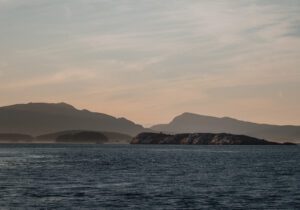
Inside this issue, you’ll find an excellent article on the status of the British Columbia fishing industry. In the article, reporter Norris Comer states that “A myriad of challenges face B.C. fisheries, with the threatened Pacific salmon stocks taking center stage.”
But in addition to the article in this issue, there’s an article published by Canada’s National Observer, a news and analysis website.
In the National Observer article, reporter Rochelle Baker declares that British Columbia’s commercial salmon fleet is “clearly in the midst of transformative change.”
The federal government in Ottawa has shuttered about 60% of B.C.’s commercial fisheries since 2021, and in December, launched a buyback program to lure fish harvesters to exit the industry to protect plummeting salmon stocks.
According to Fisheries and Oceans Canada, many salmon stocks are declining to historic lows, due to climate change, habitat loss and other adverse impacts on Pacific salmon.
“What’s less evident is who will remain on the water with access to salmon as the federal government reshapes the industry that was once the backbone of the coast,” Baker reported. “But many suspect large corporations and investors that never set boots on the deck of a fishing vessel will continue to prosper while independent harvesters and coastal communities languish.”
According to Jim McIsaac, vice-president of the Canadian Independent Fish Harvesters’ Federation, a pattern of fishing licenses and quota concentrated in the hands of large seafood processing companies is firmly entrenched in B.C.
“If Fisheries and Oceans Canada fails to make policy changes as the salmon licenses and total catch decline, fishing wealth will continue to slip away to urban areas and those with lots of capital,” Baker reported.
The National Observer article also delves into the buyback program, an issue that you can read more about on Page 11 of this magazine.
In the article, we report that there’s a total of 85 active marine finfish licenses (for open-net pen farms) in British Columbia, of which 84 licenses were reissued this past summer, expiring on June 30, 2024.
“Climate change, habitat degradation, pollution, land and water use, acute events like toxic spills and landslides, and fishing pressure have wreaked havoc on many Pacific salmon stocks, and we must address this crisis head on,” Minister of Fisheries, Oceans and the Canadian Coast Guard Joyce Murray is quoted as saying.
“Wild Pacific salmon are an iconic keystone species in British Columbia that are facing historic threats,” Murray said. “Our government is taking action to protect and return wild salmon to abundance and ensure Canada is a global leader in sustainable aquaculture.”
Ruth Salmon, interim executive director of the BC Salmon Farmers Association, called the license renewal plan an opportunity to work with all levels of government, including First Nations, to secure a future that will benefit Indigenous and non-Indigenous coastal communities, meet the global demand for healthy, affordable seafood, and support the continued protection and restoration of wild Pacific salmon.
However, Joy Thorkelson of the United Fishermen and Allied Workers’ Union, told the National Observer that she thinks that most of the license buybacks will involve “low-hanging fruit”: inactive licenses bought cheap or inherited by people not involved in the industry or harvesters who have recently retired due to ongoing declines in the commercial salmon sector.
The ministry hasn’t clarified when, how or if equitable distribution of fishing benefits, including quota or licenses, is part of the plan for the fishery once the buyback process is complete in three years.
The full National Observer article can be read online at https://tinyurl.com/42uk9y8r. Our own reporting on BC commercial fisheries issues can be found on Page 30 of this magazine.
The various issues that BC fishermen are dealing with are serious and complex. And as the months and years roll by, we’ll track all of them for you here in the pages of Fishermen’s News.
Stay tuned.
Managing Editor Mark Nero can be reached at mark@maritimepublishing.com
